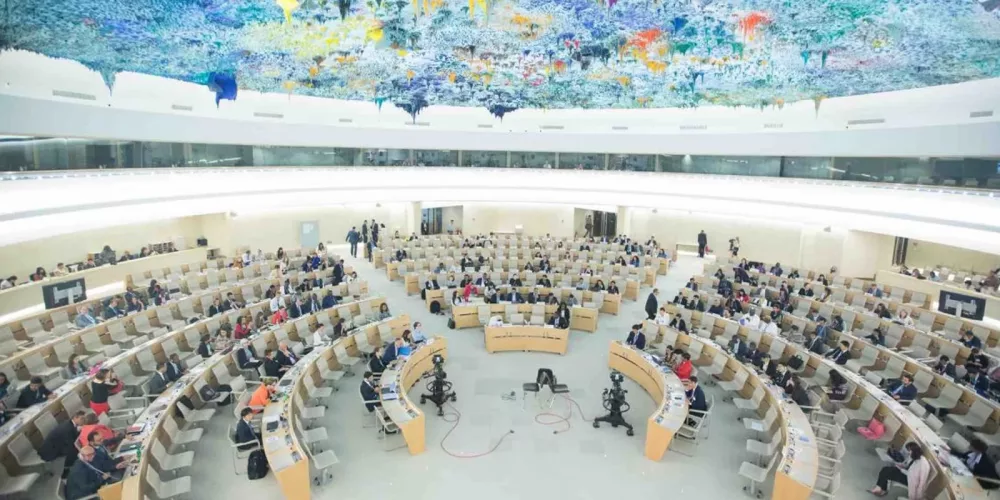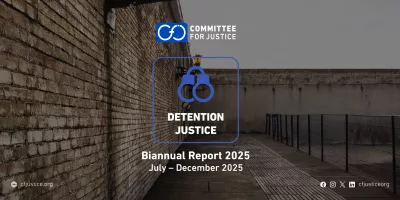The United Nations Human Rights Council in Geneva adopted a new resolution (A/HRC/58/L.27/Rev.1) in its session on Friday, April 4, without a vote. The resolution implicitly recognizes the dangers of transnational repression through digital means targeting human rights defenders, despite the absence of explicit reference to the term.
The resolution’s adoption followed intensive consultations with civil society organizations, including the Committee for Justice (CFJ), which submitted recommendations to address this phenomenon, particularly in the context of cyberattacks and spyware targeting human rights defenders abroad.
– The CFJ Recommendations:
Previously, the CFJ had submitted recommendations regarding the resolution, calling for the explicit recognition of transnational repression as a tool to suppress human rights defenders, linking this form of repression with the use of digital tools. The committee also urged states to halt the use of international legal cooperation mechanisms as a weapon to repress dissidents abroad and emphasized the need to enhance legal protection for human rights defenders in exile, along with a request for a special report on transnational repression by the Office of the High Commissioner for Human Rights.
– Achievements in the Adopted Resolution:
Upon analyzing the adopted resolution text, the committee finds an implicit acknowledgment of digital transnational repression, specifically in the paragraph stating:
“Expressing its grave concern about repressive activities abroad by States to harm, silence and intimidate human rights defenders, outside their own jurisdiction through digital, physical and other means, including through the misuse of spyware…”
This paragraph clearly recognizes the danger of targeting human rights defenders beyond national borders through digital means, reflecting the essence of transnational repression, despite the term not being explicitly used.
The adopted resolution also included cyberattacks and surveillance tools in Articles 9(b) and 9(m), where it calls for refraining from using spyware and emerging technologies in ways that conflict with human rights, while stressing the need to provide redress mechanisms for victims affected by digital surveillance.
The resolution also acknowledged extraterritorial surveillance, stating:
“…surveillance and/or interception of communications, including extraterritorial surveillance…”—a direct reference to one of the most prominent forms of transnational repression.
– What the Adopted Resolution Lacked:
Despite the achievements contained in the adopted resolution, it is noteworthy that the explicit term “Transnational Repression” was absent; it was not used in any part of the resolution, despite its recurring appearance in reports by special rapporteurs and civil society organizations.
Additionally, recommendations concerning the use of tools such as Interpol or judicial extradition mechanisms—which are among the most prominent tools of transnational repression—were not included, even though they were emphasized in the committee’s proposals.
Furthermore, the resolution did not call for a special report on transnational repression; instead, it limited itself to requesting the organization of regional workshops on digital threats in general (Paragraph 15) and the preparation of a general report (Paragraph 16).
For all these reasons, the CFJ believes that although the term “transnational repression” was not explicitly used in the adopted resolution, it contains substantial and clear references that align with the submitted proposals—especially through recognition of the targeting of defenders abroad and condemnation of the use of spyware against them.
The resolution also explicitly affirms transnational surveillance, which represents a significant step forward in international recognition of this phenomenon. However, this progress needs to be built upon in future sessions by advocating for the explicit recognition of the term, the inclusion of investigative mechanisms for specific cases, and the development of binding standards to limit repressive legal cooperation between states.






